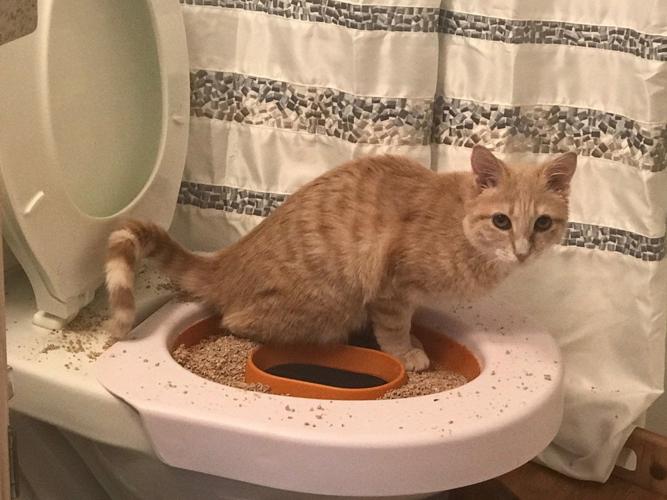Why You Shouldn't Flush Cat Poop Down Your Toilet - Maintain Your Plumbing System
Why You Shouldn't Flush Cat Poop Down Your Toilet - Maintain Your Plumbing System
Blog Article
Were you on the lookout for selective information around How to Dispose of Cat Poop and Litter Without Plastic Bags?

Intro
As cat owners, it's important to be mindful of just how we deal with our feline friends' waste. While it may seem practical to flush cat poop down the toilet, this method can have damaging repercussions for both the atmosphere and human wellness.
Alternatives to Flushing
The good news is, there are more secure and more liable means to take care of cat poop. Think about the adhering to options:
1. Scoop and Dispose in Trash
The most typical approach of dealing with feline poop is to scoop it into a naturally degradable bag and throw it in the garbage. Make certain to make use of a dedicated clutter inside story and throw away the waste promptly.
2. Use Biodegradable Litter
Opt for biodegradable feline trash made from materials such as corn or wheat. These trashes are environmentally friendly and can be safely gotten rid of in the trash.
3. Hide in the Yard
If you have a lawn, take into consideration burying cat waste in a marked location away from vegetable yards and water resources. Make sure to dig deep adequate to prevent contamination of groundwater.
4. Mount a Pet Waste Disposal System
Invest in a pet garbage disposal system specifically made for feline waste. These systems make use of enzymes to break down the waste, reducing odor and ecological effect.
Wellness Risks
Along with ecological worries, flushing cat waste can likewise posture health and wellness dangers to human beings. Feline feces may contain Toxoplasma gondii, a bloodsucker that can create toxoplasmosis-- a possibly extreme ailment, specifically for pregnant ladies and individuals with damaged immune systems.
Ecological Impact
Purging feline poop presents unsafe microorganisms and bloodsuckers right into the water system, posing a considerable threat to marine ecosystems. These contaminants can adversely influence aquatic life and compromise water top quality.
Final thought
Accountable animal possession expands past offering food and sanctuary-- it also includes correct waste monitoring. By avoiding purging feline poop down the bathroom and selecting alternate disposal approaches, we can lessen our ecological footprint and safeguard human health and wellness.
Why Can’t I Flush Cat Poop?
It Spreads a Parasite
Cats are frequently infected with a parasite called toxoplasma gondii. The parasite causes an infection called toxoplasmosis. It is usually harmless to cats. The parasite only uses cat poop as a host for its eggs. Otherwise, the cat’s immune system usually keeps the infection at low enough levels to maintain its own health. But it does not stop the develop of eggs. These eggs are tiny and surprisingly tough. They may survive for a year before they begin to grow. But that’s the problem.
Our wastewater system is not designed to deal with toxoplasmosis eggs. Instead, most eggs will flush from your toilet into sewers and wastewater management plants. After the sewage is treated for many other harmful things in it, it is typically released into local rivers, lakes, or oceans. Here, the toxoplasmosis eggs can find new hosts, including starfish, crabs, otters, and many other wildlife. For many, this is a significant risk to their health. Toxoplasmosis can also end up infecting water sources that are important for agriculture, which means our deer, pigs, and sheep can get infected too.
Is There Risk to Humans?
There can be a risk to human life from flushing cat poop down the toilet. If you do so, the parasites from your cat’s poop can end up in shellfish, game animals, or livestock. If this meat is then served raw or undercooked, the people who eat it can get sick.
In fact, according to the CDC, 40 million people in the United States are infected with toxoplasma gondii. They get it from exposure to infected seafood, or from some kind of cat poop contamination, like drinking from a stream that is contaminated or touching anything that has come into contact with cat poop. That includes just cleaning a cat litter box.
Most people who get infected with these parasites will not develop any symptoms. However, for pregnant women or for those with compromised immune systems, the parasite can cause severe health problems.
How to Handle Cat Poop
The best way to handle cat poop is actually to clean the box more often. The eggs that the parasite sheds will not become active until one to five days after the cat poops. That means that if you clean daily, you’re much less likely to come into direct contact with infectious eggs.
That said, always dispose of cat poop in the garbage and not down the toilet. Wash your hands before and after you clean the litter box, and bring the bag of poop right outside to your garbage bins.
https://trenchlesssolutionsusa.com/why-cant-i-flush-cat-poop/
We hope you liked our topic on How to Dispose of Cat Poop and Litter Without Plastic Bags. Many thanks for spending some time to read our short article. Appreciated our piece? Please share it. Let others find it. Thanks for your time. Please come visit our blog back soon.
Hire A Pro Report this page